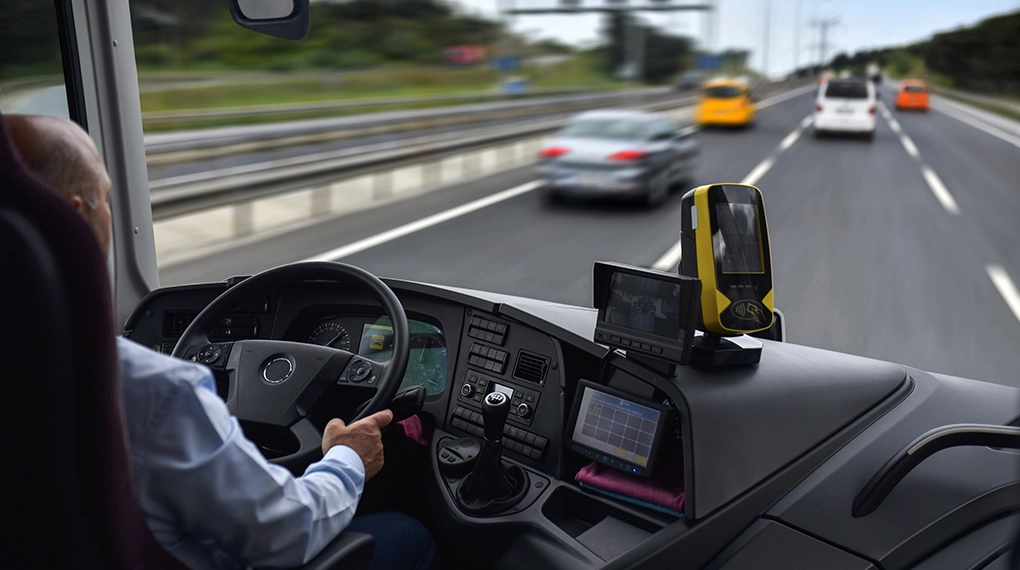That’s a question that we’re asked a lot at the moment.
If you’ve arranged a trip (or tried to) since Covid restrictions were lifted, then chances are you’ve found costs have risen significantly.
In this blog, we’ll take you through some of the key factors driving these rising costs, before explaining what can be done to keep prices to parents as low as possible.
Let’s dive in.
Cost of living still having an impact

Unfortunately, the cost of living is still having a big impact on everything, including the cost of school trips.
The rise in the cost of living has been driven by a few factors.
Of course, it started with the strong global demand for consumer goods after the Covid-19 pandemic and lockdowns. And this was made worse by supply chain disruption, also caused by the pandemic.
Added to that was the soaring cost of energy and fuel, which was largely (although not exclusively) caused by Russia’s full-scale invasion of Ukraine.
Rising fuel prices have obviously affected transport costs, but they’ve also impacted accommodation costs, as suppliers are having to charge guests more to cover their bills.
And it’s impacted other areas too. We’ve all noticed how much more expensive our weekly shop is.
In fact, according to a government report, here in the UK, food prices have increased by 28% over the two years between October 2021 and October 2023. Previously, it took 13 years (from April 2008 to October 2021) for average food prices to raise a similar amount.
A similar picture in Europe means that accommodation centres and restaurants are also having to pass these rising costs on to guests, and this is being felt in the cost of school trips too.
The annual rate of inflation has declined over the course of 2023, but the Eurozone average remains at around 2.9% (with the UK at 4.6%) and so prices are likely to continue to rise, although thankfully at a slower pace than we have seen over the last couple of years.
Coaching costs still high (but still cheaper than air travel)

As we saw above, both coach and air travel is being affected by higher fuel costs.
But coach travel is also being affected by a real issue with driver shortages. According to the International Road Transport Union (IRU), in Europe in 2023, there were 105,000 unfilled drivers positions – that’s 10% of the total positions. And this is an increase of 54% on the previous year.
And this has two effects that make your school trips more expensive.
The first is that coach operators are having to increase drivers’ wages to keep and attract the best drivers.
The second is that these shortages mean that operators aren’t able to grow to meet demand and, in fact, nearly half of them are facing ‘declining productivity’, meaning they will be able to fulfil fewer trips. So, in order to keep going and cover their own operating costs, operators are having to increase prices.
Speaking of operating costs, according to the Road Haulage Association (RHA), coach prices are also having to cover increased maintenance costs (by around 9.5%) driven by technician shortages and safety updates, as the price of everything from wiper blades to tyres continues to rise. And insurance costs have risen by about 7% compared to last year, too.
So, how is this actually translating to coach prices for school trips? Well, a survey of Coach Operators Association members found that, compared to pre-pandemic prices, a rise of about 25% was typical, with some operators increasing prices by as much as 40%.
Our dedicated procurement team have a fantastic relationship with our coach suppliers and they work hard to ensure that we secure coaches at the best possible price for our groups.
And, to put all this in perspective, we’re still finding that coach prices are working out less expensive than flights to most destinations, so we would still recommend travelling by coach where possible if price is key to getting your trip off the ground.
Demand still outstripping supply in travel
A big factor affecting the price of both school trips and leisure travel at the moment is the fact that demand is still outstripping supply, as the travel industry bounces back after the Covid-19 pandemic.
There’s still so much pent-up demand thanks to all the trips and holidays that had to be delayed or cancelled due to Covid – and this huge demand drives the price of transport and accommodation up.
To give you an idea, the United Nations World Tourism Organization (UNWTO) has estimated that a staggering 975 million tourists travelled between January and September 2023. This represents a huge increase of 38% compared to last year – and takes us to about 87% of pre-pandemic levels.
Most of our school groups travel to Europe, which is the region in 2nd place in terms of recovery, having welcomed 550 million tourists in the period between January and September 2023 – that’s 94% of pre-pandemic levels.
And this looks set to continue, as the UNWTO has stated that international tourism is on track to recover to pre-pandemic levels in 2024.
So, this explains why school trips are more expensive right now. But is there anything you can do to reduce the cost of your trip for parents? You’ll be pleased to know that the answer is yes, and we’ll talk you through some of our top tips below.
How to save money on your school trip this year

There are a few tactics you can employ to drive down the price of your school trip and help make it as affordable as possible for parents.
Our top tips to help you save money on your school trip this year are:
- Fill your coach
- Include free activities
- Get fundraising
- Avoid the school holidays
- Be flexible with your travel dates
- Think about your meals
- Make use of our experts
1. Fill your coach
One great way to do this is to make sure that you fill your coach (if that’s your chosen method of transport!).
If you need to boost your numbers to do so, why not make you school trip cross-curricular, opening it up to more students?
Someone who’s done just that (and extremely successfully) is Adam Higgins, of Royal Liberty School.
He’s recently arranged two cross-curricular trips to Belgium and Iceland – so we asked him for his top tips for cross-curricular school trips:
- Look at which subjects go naturally together for a destination. For example, Iceland was easily science and geography and Belgium was easily science and history.
- Get the other faculty on board - if they're excited about it, their students will be too!
- As well as the cross-curricular aspect, try and get some cultural visits which will also appeal to other students. For example, in our upcoming Amsterdam trip, we’re visiting the Ajax stadium, as well as various science and history-focused visits.
- When sending the trip out to parents highlight all of the aspects of the trip. The more varied the range of activities, the more likely parents are to send students on the trip, as they see this as better value for money with a wider range of experiences on offer for their children.
2. Include free activities
We’ve previously written about some of the free activities available in some of our most popular destinations:
- Free activities in Paris
- Free activities in Berlin
- Free activities in Barcelona
- Free activities in Munich
- Free activities in Krakow
- Free activities in Nice
And don’t forget, our school travel specialists know our destinations really well. So if you are keen to include some free (or less expensive) activities, just ask us – we’ll be happy to chat about the options available for your trip!
3. Get fundraising
Another way to ease the cost of school trips for parents is to get the kids involved in a bit of fundraising.
This also gives them the chance to take some ownership of the trip and develop their independence and responsibility ahead of travelling abroad with you – so, it’s win-win!
We’ve put together a list of ideas that you could consider for your group’s fundraising.
4. Avoid the school holidays
We know a lot of schools won’t entertain the idea of authorising travel during term-time but, honestly, this is one of the best ways to keep costs down on school trips.
Travelling during the school holidays means you’ll be competing with the maximum number of other tourists, so accommodation and transport will be more limited and, therefore, will be charged at a premium.
If you’re planning on travelling by coach, for example, the quietest periods for coach operators tend to be January, February and November – so travelling during one of these months could bag you a bargain in terms of your coaching costs.
So, if you can persuade your school to allow you to travel during term time, you’ll benefit from better availability, which means more choice and, usually, a cheaper trip.
5. Be flexible with your travel dates
If you’ll be flying, then flexibility with your travel dates can really help keep the trip costs down.
The flight cost is often the most expensive part of the trip and you will often pay a premium for convenient flight times.
This should allow you to opt for cheaper flights – and our school travel specialists will talk you through the options to help you make the best choice for your trip and budget.
If you can be flexible about where you fly from, this can save you some money too. Generally (though not always), flights from the smaller, regional airports tend to be more expensive than from the larger hubs.
Of course, if you do choose to fly from one of the London airports, for example, you’ll need to weigh up the cost of the UK transfer, but this could still work out cheaper. Again, our school travel specialists can help you work out what’s best for your trip.
6. Think about your meals
When you have a group of permanently hungry kids, working out what you do about meals is essential.
If you have a specific budget to keep to, you could consider booking half-board accommodation (which usually means breakfast and your evening meals will be included).
This will make the initial trip cost cheaper, but do bear in mind that parents will still need to pay for their children’s lunches, and they’ll need to account for this in the amount of spending money they send them on the trip with.
Remember too that if you haven’t booked lunch, you’ll need to spend some time each day finding somewhere that can cater for all of you. If you’re in a large city, this probably won’t be an issue, but if you are somewhere a little quieter, it might be a bit trickier.
Again, this is something that our school travel specialists can help you with, so please just ask us if you want to chat about the options for your group.
7. Make use of our experts
We’ve been arranging school trips for nearly 40 years, so please do use us to get the most value out of your trip.
Our experts can help you to work out the best ways to cut costs, without compromising on the educational and developmental value of your trip.
We can help you to decide the best value destination, transport and accommodation, and we can even recommend free or inexpensive activities to support your learning objectives.
So, get in touch with us today to start planning your next trip!